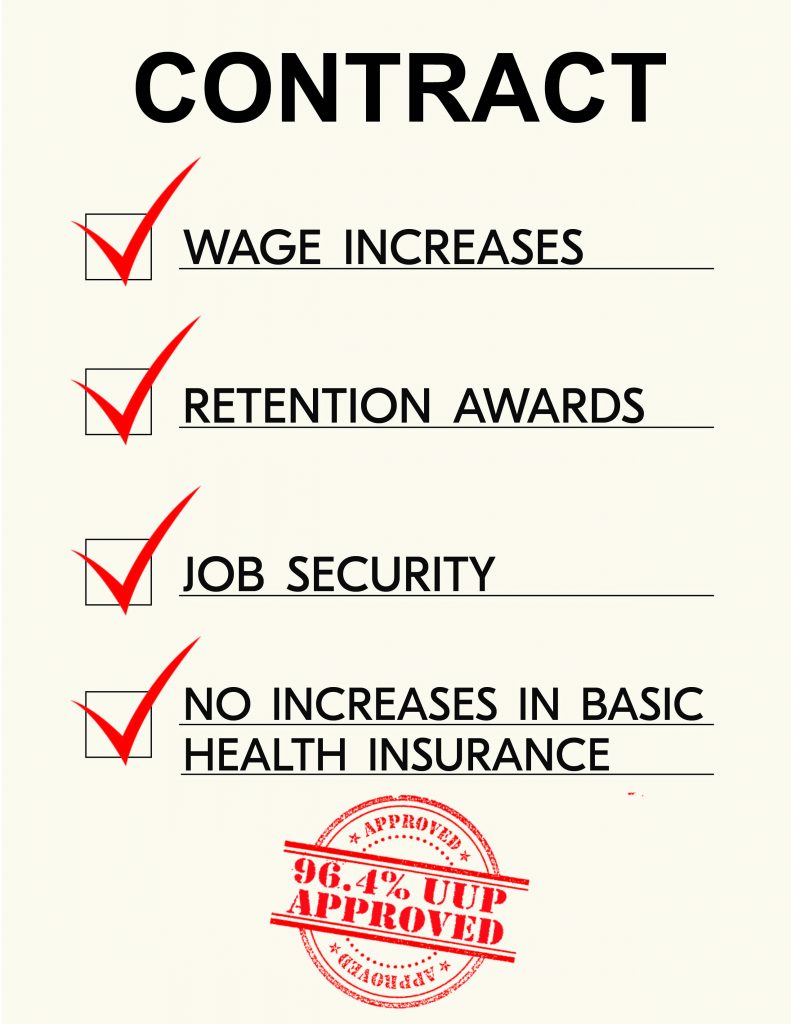New York Gov. Kathy Hochul announced a labor agreement with the United University Professions (UUP), the union that represents more than 37,000 faculty and staff on SUNY campuses.
According to a press release from Hochul’s office, her administration reached a four-year term agreement with the UUP, running until July 1, 2026. Faculty and staff will see substantial salary boosts, fortified health care coverage, paid family leave and a renewed focus on professional development opportunities. The contract was approved by 96.4 percent of voting union members, 14,900 to 556.
UUP President Frederick Kowal explained that the contract was required by New York State’s Public Employees Fair Employment Act — also called the Taylor Law.
“The contracts cover compensation, benefits and job protections for our members,” Kowal wrote in an email. “It’s part of the long history of collective bargaining by unions with management, which in this case, is the Governor. [She] was required by law to negotiate, but she was eager to [reach] a fair settlement.”
Successes in the labor negotiations reflect a nationally changing union landscape. This summer, SAG-AFTRA, which represents over 160,000 actors and other media professionals, called a strike against the Alliance of Motion Picture and Television Producers, a group of over 350 American production companies. In August, the Teamsters Union announced a new labor contract with United Parcel Service (UPS), averting a strike threat.
UUP is the bargaining agent for professional staff and academics working at SUNY campuses, excluding community colleges. A “strong, politically influential” organization in New York state, UUP offers solutions to challenges facing SUNY and communities across the state, according to its website. UUP members are employed across 29 New York state-operated campuses, encompassing SUNY’s public teaching hospitals and health science centers located in Brooklyn, Long Island and Syracuse.
Kowal described UUP’s intentions for establishing an agreement with Hochul’s administration.
“UUP’s purposes are to negotiate contracts, make sure that the contract is carried out justly with protections of our rights ensured and we also lobby for more state funding for SUNY campuses,” Kowal wrote. “UUP works with its members in meetings and discussions to develop our proposals. The process takes about two years even before negotiations with the state take place.”
According to Kowal, negotiations for the contract took about a year to conclude, and a benefits staff is dedicated to ensuring members are cared for. The hope for the contract is to achieve better living circumstances for all members. Members now have paid parental leave for up to 12 weeks and increased pay for adjunct lecturers, who are traditionally given low salaries.
Jessica Lin, a freshman majoring in integrative neuroscience, said why she thinks the new contract might be beneficial for SUNY campuses.
“As a SUNY student, knowing that our educators and staff will receive the recognition and support they truly deserve is affirming,” Lin said. “This agreement not only ensures a brighter future for SUNY but also for every student who walks through its doors. It’s a testament to how dedicated the Governor is to the SUNY system.”
Casey Lee, a sophomore majoring in business administration, said this contract will have a generally positive impact on SUNY campuses.
“With multiple employee benefits, SUNY faculty and staff will be assured knowing that their job is secure, ” Lee said. “When educators are valued, students thrive, and institutions stand as a beacon of academic excellence.”



